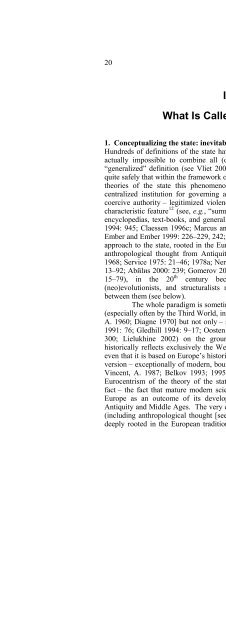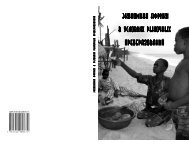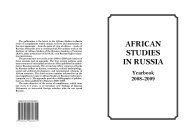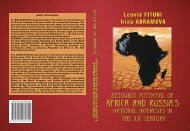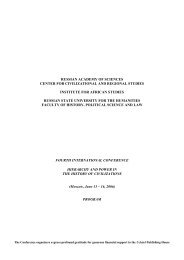Bondarenko Dmitri M. Homoarchy
Bondarenko Dmitri M. Homoarchy
Bondarenko Dmitri M. Homoarchy
Create successful ePaper yourself
Turn your PDF publications into a flip-book with our unique Google optimized e-Paper software.
20<br />
II<br />
What Is Called the State?<br />
1. Conceptualizing the state: inevitable Eurocentrism?<br />
Hundreds of definitions of the state have been proposed by now. It turns out<br />
actually impossible to combine all (or even almost all) of them into one<br />
“generalized” definition (see Vliet 2005: 121–122) but it still may be argued<br />
quite safely that within the framework of the overwhelming majority of modern<br />
theories of the state this phenomenon is considered as a specialized and<br />
centralized institution for governing a society, to what its right to exercise<br />
coercive authority – legitimized violence is often added as the state’s critical<br />
characteristic feature 12 (see, e.g., “summarizing” definitions in anthropological<br />
encyclopedias, text-books, and general publications of the recent years: Earle<br />
1994: 945; Claessen 1996c; Marcus and Feinman 1998: 4; Elwert 1999: 352;<br />
Ember and Ember 1999: 226–229, 242; Abйlиs 2000; Kradin 2004: 268). This<br />
approach to the state, rooted in the European political, philosophic, legal, and<br />
anthropological thought from Antiquity on (Hodgen 1964: 354–515; Harris<br />
1968; Service 1975: 21–46; 1978a; Nersesjants 1985; 1986; Iljushechkin 1996:<br />
13–92; Abйlиs 2000: 239; Gomerov 2002: 14–68; Evans-Pritchard 2003/1981:<br />
15–79), in the 20 th century became equally typical of Marxists,<br />
(neo)evolutionists, and structuralists notwithstanding significant differences<br />
between them (see below).<br />
The whole paradigm is sometimes heavily criticized and even rejected<br />
(especially often by the Third World, including African, scholars [e.g., Diop, C.<br />
A. 1960; Diagne 1970] but not only – see, e.g., Skalnнk 1983; 1987; Southall<br />
1991: 76; Gledhill 1994: 9–17; Oosten and Velde 1994a: 15–16; 1994b: 299–<br />
300; Lielukhine 2002) on the grounds that claiming for universality, it<br />
historically reflects exclusively the Western approach to the phenomenon and<br />
even that it is based on Europe’s historical experience only (in the most radical<br />
version – exceptionally of modern, bourgeois Western Europe [Entrиves 1969;<br />
Vincent, A. 1987; Belkov 1993; 1995; Creveld 1999]). In our opinion, the<br />
Eurocentrism of the theory of the state results from a much more inclusive<br />
fact – the fact that mature modern science as such was born in postmedieval<br />
Europe as an outcome of its development in the preceding periods – the<br />
Antiquity and Middle Ages. The very contemporary scientific way of thinking<br />
(including anthropological thought [see Hodgen 1964; Hartog et al. 2000]) is<br />
deeply rooted in the European tradition. The European intellectual legacy is


